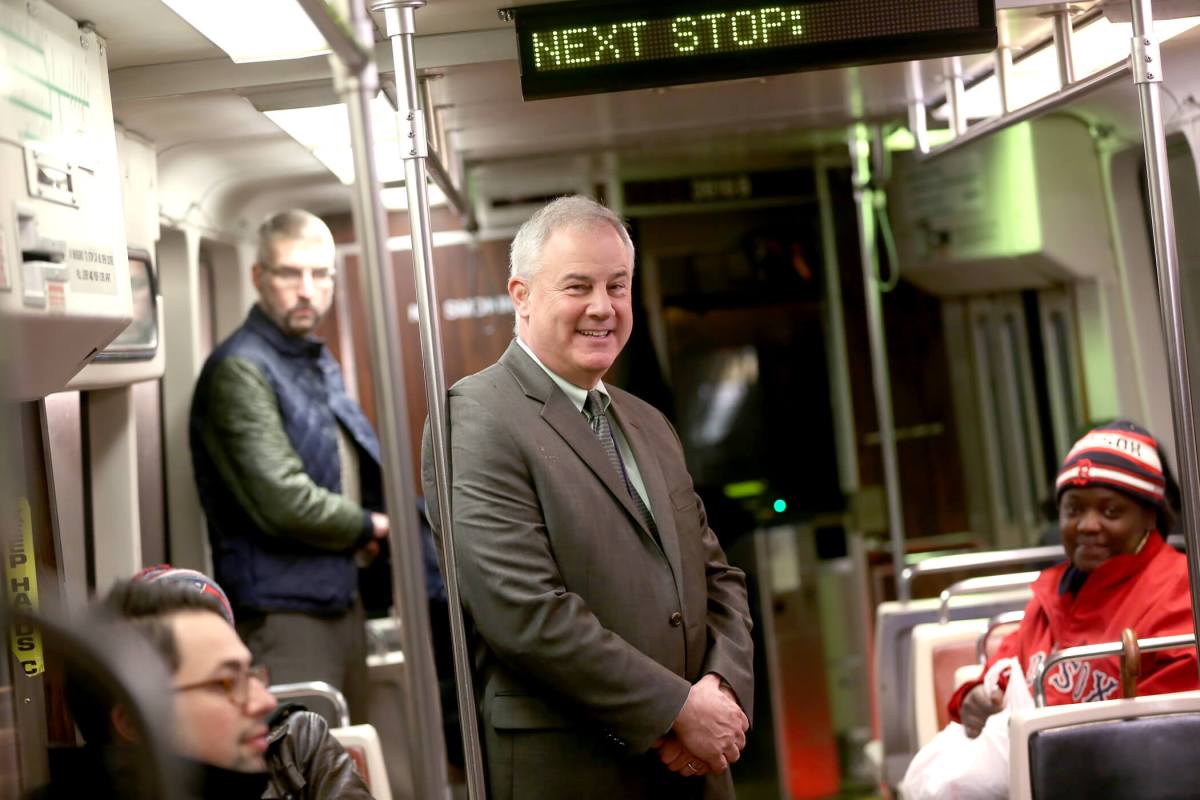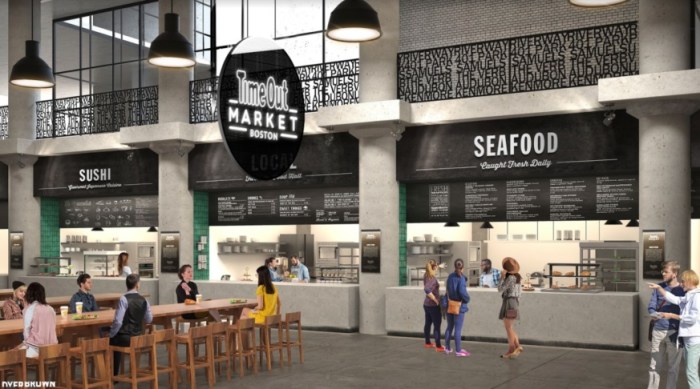Frank DePaola — the new interim general manager of the MBTA — has his work cut out for him.
The 59-year-old Brockton native just took the reins an agency that is debt-addled and controversy plagued. This past winter saw riders frustrated with delays and cancellations as historic blizzards wreaked havoc on the antiquated subway cars and track infrastructure while dumping more than eight feet of snow in the region. We spoke with DePaola, who is making $160,000 in his current role, about where the MBTA goes from here.
Metro: What’s the biggest challenge currently facing the T?
I think in the short term, we’re focused on reviewing the events of this winter, to determine some of the root causes of the service interruptions and see if we can put into place the steps, procedures and physical work to prevent that from reoccurring. Metro: Can you give any assurances what happened this winter won’t happen again?
I’m going to say yes. And this is going to sound a little corny, but it’s like a three-legged stool. In order for the service to run you need your track and infrastructure, you need vehicles and you need policies and procedures. I think we’re going to find, in some measure, all three of those facets had issues.
The physical track and infrastructure is something that can be tested, examined and repaired.
The vehicles, we can determine what failed and either order enough spare parts or do enough repair work so they’re more robust going into the winter.
Our procedures — how we handle our response to storm events –clearly, we need to look at upgrading those to account for extreme weather events when our normal operating procedure is not sufficient to keep us running throughout all storms. Those are the things we need to do. Metro: What should the T have done differently this winter?
That’s a hard one to answer, because going into the winter we know some vehicles fail due to stress.
We went in with a reasonable estimate of many spare parts we would need to get through the winter.
Those three to four weeks in late January through February caused a much higher failure rate of vehicles than anyone anticipated.
Our car count, the number of vehicles we have to provide service, dropped significantly, which meant we couldn’t provide as many trains on the lines, which meant the headway between vehicles got larger. We’ve now recovered and we’re back to 100 percent of our daily car count; service for the last couple weeks has been restored.
Metro: So are you saying what happened to the T this winter was unavoidable?
Unanticipated. Clearly If we knew we would have over a 100 traction motor failures, we would have done our best to have that many spare motors available. Going into next winter, we will have more spare motors available. Metro: What do you consider to be the T’s biggest failure?
Failure is a bad word. I think as the weather pattern established itself and as we started to have multiple storms, I think the T’s reliance on standard operating procedures for storm response proved to be unworkable. When the system shut down is when the MBTA decided they needed to do something different, which was to get physical labor out there to dig out outside sections of the right of way.
Whether or not that could have been recognized earlier, we could have had shorter durations of shutdowns and dug away the ice and snow before we got to where we were.
Metro: Are there going to be different contingency plans in the future?
One of the things we need to do is to have on-call, contracted work to come in to help respond if we have extreme weather. I think that something should be straightforward for us to put into place, we’ll have to budget for it and hopefully we’ll never have to use it. Metro: You’re talking about opting to use contractors to remove snow from the tracks sooner than the MBTA did this winter?
Yes. The T didn’t have contracts in place. We had to do this through emergency procurements.
Metro: You have the title of interim GM. Are you approaching this job look to maintain the status quo or do you have plans to implement significant reform?
I think that’s yet to be determined.
The initial goal as an interim general manageris to keep it running and recover service this winter and also do whatever we can do to show going into a new winter, the root cause (of the problems) have been identified and addressed. There are several independent groups looking at the MBTA, both its structure and its organization and if recommendations come out of those groups that the administration wants to implement, I will certainly be involved in the implementation of some of those ideas. But those have yet to be determined, so it’s hard to say. I don’t have any wholesale plans to reorganize the T, however, ideas such as that could come out of those recommendations. Metro: How big a part of the job is convincing Beacon Hill that you need money?
It’s a large part of the job, but I think we need to justify that we’re deserving of that money and I think we need to make sure we do a thorough examination of our organization to see if there are efficiencies we can take advantage of to create any additional finance capacity. Metro: Do you think there’s been a lack of political will when it comes to funding the T?
If there’s one silver lining out of this winter, I believe the public has been made aware of the need of the MBTA to maintain service.
I think a few years ago, people assumed the MBTA would run no matter what and they never connected financing and fiscal health of the MBTA with the service being provided. The MBTA needs to have attention paid to it. There’s significant impact on the metro Boston region when there’s limited MBTA service.
Metro: Do you think there will be any public pressure to increase your funding from the state?
I do believe that public will demand some sort of effort to address the needs of the T and not just a band aid. It needs substantial investment to bring the T back to up to a state of good repair.
Metro: House Speaker Robert DeLeo recently appeared to question new planned MBTA projects. What do you say to that, this question of whether the T should be expanding instead of concentrating on maintaining the services it already has? I think expansion can go forward if we have complementary investment in what we call the core.
I think with the right funding formula you can keep your core maintained while looking at expanding to other areas and populations.
Metro: Mass. Taxpayers Foundation recently published a report recommending Gov. Charlie Baker take direct, short-term control over the MBTA. What do you make of that?
Isn’t he busy as governor? The fundamental organization of the T is what being looked at. Can an independent authority continue to be an independent authority when it doesn’t have revenue to cover its operating costs? For the past several years the state has had to give the T a subsidy to cover its operating costs.
Even though it’s an independent authority, it is dependent upon the state legislature for budget numbers. So how independent can you be if the state every year is essentially approving your budget? Metro: What’s the timeline for your job? How long do you expect to be in this position?
I’m the interim general manager until they complete the search and find someone, I’ll be here.
It will take them several months to do that.
I expect to be here through the end of this calendar year.
Editor’s note: This interview has been condensed and edited for clarity.
This guy just took on the most hated job in the commonwealth

Nicolaus Czarnecki/Metro
















